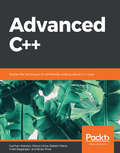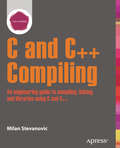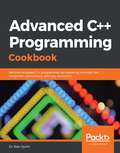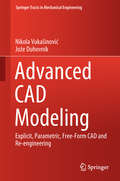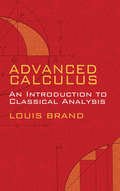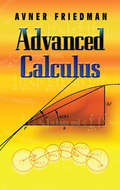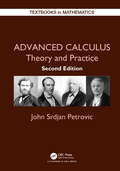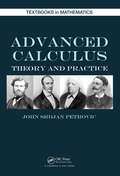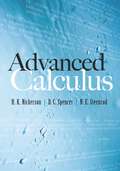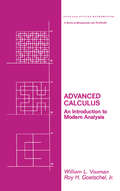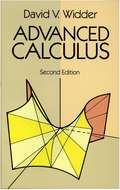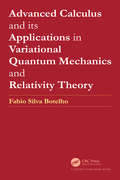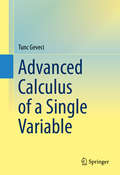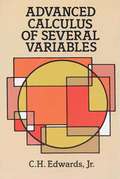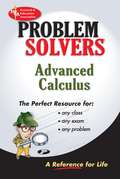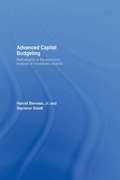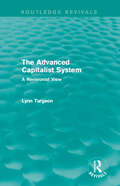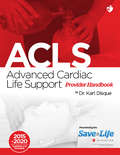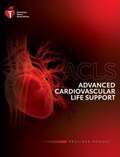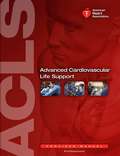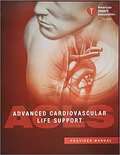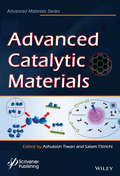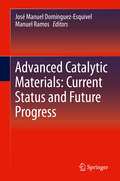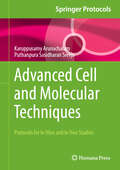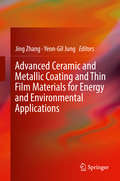- Table View
- List View
Advanced C++: Master the technique of confidently writing robust C++ code
by Brian Price Vivek Nagarajan Gazihan Alankus Olena Lizina Rakesh ManeBecome an expert at C++ by learning all the key C++ concepts and working through interesting exercises Key Features Explore C++ concepts through descriptive graphics and interactive exercises Learn how to keep your development bug-free with testing and debugging Discover various techniques to optimize your code Book Description C++ is one of the most widely used programming languages and is applied in a variety of domains, right from gaming to graphical user interface (GUI) programming and even operating systems. If you're looking to expand your career opportunities, mastering the advanced features of C++ is key. The book begins with advanced C++ concepts by helping you decipher the sophisticated C++ type system and understand how various stages of compilation convert source code to object code. You'll then learn how to recognize the tools that need to be used in order to control the flow of execution, capture data, and pass data around. By creating small models, you'll even discover how to use advanced lambdas and captures and express common API design patterns in C++. As you cover later chapters, you'll explore ways to optimize your code by learning about memory alignment, cache access, and the time a program takes to run. The concluding chapter will help you to maximize performance by understanding modern CPU branch prediction and how to make your code cache-friendly. By the end of this book, you'll have developed programming skills that will set you apart from other C++ programmers. What you will learn Delve into the anatomy and workflow of C++ Study the pros and cons of different approaches to coding in C++ Test, run, and debug your programs Link object files as a dynamic library Use templates, SFINAE, constexpr if expressions and variadic templates Apply best practice to resource management Who this book is for If you have worked in C++ but want to learn how to make the most of this language, especially for large projects, this book is for you. A general understanding of programming and knowledge of using an editor to produce code files in project directories is a must. Some experience with strongly typed languages, such as C and C++, is also recommended.
Advanced C and C++ Compiling
by Milan StevanovicLearning how to write C/C++ code is only the first step. To be a serious programmer, you need to understand the structure and purpose of the binary files produced by the compiler: object files, static libraries, shared libraries, and, of course, executables. Advanced C and C++ Compiling explains the build process in detail and shows how to integrate code from other developers in the form of deployed libraries as well as how to resolve issues and potential mismatches between your own and external code trees. With the proliferation of open source, understanding these issues is increasingly the responsibility of the individual programmer. Advanced C and C++ Compiling brings all of the information needed to move from intermediate to expert programmer together in one place -- an engineering guide on the topic of C/C++ binaries to help you get the most accurate and pertinent information in the quickest possible time. What you'll learn The details of the build process, including compiling and linking The inner workings of static libraries, shared libraries, and executables Ways to properly architect code for smooth integration of future changes Tips for troubleshooting problems with compiling and linking as well as run-time problems How to use operating system-specific (Linux and Windows) tools for analysis of binary files Who this book is for C/C++ software designers aspiring to senior levels, software architects, build engineers, and Linux system administrators. Table of ContentsMultitasking OS Basics Simple Program Lifetime StagesProgram Execution StagesThe Impact of Reusing ConceptWorking with Static Libraries Designing Dynamic Libraries: BasicsLocating the LibrariesDesigning Dynamic Libraries: Advanced TopicsHandling Duplicate Symbols When Linking In Dynamic LibrariesDynamic Libraries Versioning Dynamic Libraries Miscellaneous TopicsThe Linux ToolboxLinux TasksWindows Toolbox"
Advanced C++ Programming Cookbook: Become an expert C++ programmer by mastering concepts like templates, concurrency, and type deduction
by Dr. Rian QuinnA recipe-based guide to refining your C++ programming skills with the help of coding best practices, advanced programming concepts, and the latest features of C++17 and C++20 Key Features Learn how to develop and design your own libraries Find solutions to your app development problems and implement them in a highly reusable manner, following library development best practices Explore advanced C++ features such as containers, coroutines, and modules Book Description If you think you've mastered C++ and know everything it takes to write robust applications, you'll be in for a surprise. With this book, you'll gain comprehensive insights into C++, covering exclusive tips and interesting techniques to enhance your app development process. You'll kick off with the basic principles of library design and development, which will help you understand how to write reusable and maintainable code. You'll then discover the importance of exception safety, and how you can avoid unexpected errors or bugs in your code. The book will take you through the modern elements of C++, such as move semantics, type deductions, and coroutines. As you advance, you'll delve into template programming - the standard tool for most library developers looking to achieve high code reusability. You'll explore the STL and learn how to avoid common pitfalls while implementing templates. Later, you'll learn about the problems of multithreaded programming such as data races, deadlocks, and thread starvation. You'll also learn high-performance programming by using benchmarking tools and libraries. Finally, you'll discover advanced techniques for debugging and testing to ensure code reliability. By the end of this book, you'll have become an expert at C++ programming and will have gained the skills to solve complex development problems with ease. What you will learn Solve common C++ development problems by implementing solutions in a more generic and reusable way Achieve different levels of exception safety guarantees by introducing precise declarations Write library-quality code that meets professional standards Practice writing reliable, performant code that exposes consistent behavior in programs Understand why you need to implement design patterns and how it's done Work with complex examples to understand various aspects of good library design Who this book is for This book is for intermediate and expert-level C++ developers who are looking to explore the lesser known functionalities of the language to improve the efficiency of their code and the way they develop applications. Basic knowledge of object-oriented programming concepts and the Standard Template Library (STL) is assumed.
Advanced CAD Modeling: Explicit, Parametric, Free-form Cad And Re-engineering (Springer Tracts in Mechanical Engineering)
by Nikola Vukašinović Jože DuhovnikThe book discusses the theoretical fundamentals of CAD graphics to enhance readers’ understanding of surface modeling and free-form design by demonstrating how to use mathematical equations to define curves and surfaces in CAD modelers. Additionally, it explains and describes the main approaches to creating CAD models out of 3D scans of physical objects. All CAD approaches are demonstrated with guided examples and supported with comprehensive engineering explanations. Furthermore, each approach includes exercises for independent consolidation of advanced CAD skills. This book is intended for engineers and designers who are already familiar with the basics of modern CAD tools, e.g. feature based and solid based modeling in 3D space, and would like to improve and expand their knowledge and experience. It is also an easy-to use guide and excellent teaching and research aid for academics and practitioners alike.
Advanced Calculus: An Introduction to Classical Analysis
by Louis BrandA course in analysis that focuses on the functions of a real variable, this text is geared toward upper-level undergraduate students. It introduces the basic concepts in their simplest setting and illustrates its teachings with numerous examples, practical theorems, and coherent proofs.Starting with the structure of the system of real and complex numbers, the text deals at length with the convergence of sequences and series and explores the functions of a real variable and of several variables. Subsequent chapters offer a brief and self-contained introduction to vectors that covers important aspects, including gradients, divergence, and rotation. An entire chapter is devoted to the reversal of order in limiting processes, and the treatment concludes with an examination of Fourier series.
Advanced Calculus (Dover Books on Mathematics)
by Prof. Avner FriedmanThis rigorous two-part treatment advances from functions of one variable to those of several variables. Intended for students who have already completed a one-year course in elementary calculus, it defers the introduction of functions of several variables for as long as possible, and adds clarity and simplicity by avoiding a mixture of heuristic and rigorous arguments.The first part explores functions of one variable, including numbers and sequences, continuous functions, differentiable functions, integration, and sequences and series of functions. The second part examines functions of several variables: the space of several variables and continuous functions, differentiation, multiple integrals, and line and surface integrals, concluding with a selection of related topics. Complete solutions to the problems appear at the end of the text.
Advanced Calculus: Theory and Practice (Textbooks in Mathematics #12)
by John PetrovicAdvanced Calculus: Theory and Practice, Second Edition offers a text for a one- or two-semester course on advanced calculus or analysis. The text improves students’ problem-solving and proof-writing skills, familiarizes them with the historical development of calculus concepts, and helps them understand the connections among different topics. The book explains how various topics in calculus may seem unrelated but have common roots. Emphasizing historical perspectives, the text gives students a glimpse into the development of calculus and its ideas from the age of Newton and Leibniz to the twentieth century. Nearly 300 examples lead to important theorems.Features of the Second Edition: Improved Organization. Chapters are reorganized to address common preferences. Enhanced Coverage of Axiomatic Systems. A section is added to include Peano’s system of axioms for the set of natural numbers and their use in developing the well-known properties of the set N. Expanded and Organized Exercise Collection. There are close to 1,000 new exercises, many of them with solutions or hints. Exercises are classified based on the level of difficulty. Computation-oriented exercises are paired and solutions or hints provided for the odd-numbered questions. Enrichment Material. Historical facts and biographies of over 60 mathematicians. Illustrations. Thirty-five new illustrations are added in order to guide students through examples or proofs. About the Author:John Srdjan Petrovic is a professor at Western Michigan University.
Advanced Calculus: Theory and Practice (Textbooks in Mathematics)
by John PetrovicSuitable for a one- or two-semester course, Advanced Calculus: Theory and Practice expands on the material covered in elementary calculus and presents this material in a rigorous manner. The text improves students' problem-solving and proof-writing skills, familiarizes them with the historical development of calculus concepts, and helps them unders
Advanced Calculus
by D. C. Spencer H. K Nickerson N. E. SteenrodClassroom-tested in a Princeton University honors course, it offers students a unified introduction to advanced calculus. Starting with an abstract treatment of vector spaces and linear transforms, the authors introduce a single basic derivative in an invariant form. All other derivatives — gradient, divergent, curl, and exterior — are obtained from it by specialization. The corresponding theory of integration is likewise unified, and the various multiple integral theorems of advanced calculus appear as special cases of a general Stokes formula. The text concludes by applying these concepts to analytic functions of complex variables.
Advanced Calculus: An Introduction to Modern Analysis (Pure and Applied Mathematics #63)
by William L. VoxmanAdvanced Calculus: An Introduction to Modem Analysis, an advanced undergraduate textbook,provides mathematics majors, as well as students who need mathematics in their field of study,with an introduction to the theory and applications of elementary analysis. The text presents, in an accessible form, a carefully maintained balance between abstract concepts and applied results of significance that serves to bridge the gap between the two- or three-semester calculus sequence and senior/graduate level courses in the theory and applications of ordinary and partial differential equations, complex variables, numerical methods, and measure and integration theory.The book focuses on topological concepts, such as compactness, connectedness, and metric spaces,and topics from analysis including Fourier series, numerical analysis, complex integration, generalized functions, and Fourier and Laplace transforms. Applications from genetics, spring systems,enzyme transfer, and a thorough introduction to the classical vibrating string, heat transfer, and brachistochrone problems illustrate this book's usefulness to the non-mathematics major. Extensive problem sets found throughout the book test the student's understanding of the topics and help develop the student's ability to handle more abstract mathematical ideas.Advanced Calculus: An Introduction to Modem Analysis is intended for junior- and senior-level undergraduate students in mathematics, biology, engineering, physics, and other related disciplines.An excellent textbook for a one-year course in advanced calculus, the methods employed in this text will increase students' mathematical maturity and prepare them solidly for senior/graduate level topics. The wealth of materials in the text allows the instructor to select topics that are of special interest to the student.
Advanced Calculus: Second Edition
by David V. WidderThis classic text by a distinguished mathematician and former Professor of Mathematics at Harvard University, leads students familiar with elementary calculus into confronting and solving more theoretical problems of advanced calculus. In his preface to the first edition, Professor Widder also recommends various ways the book may be used as a text in both applied mathematics and engineering.Believing that clarity of exposition depends largely on precision of statement, the author has taken pains to state exactly what is to be proved in every case. Each section consists of definitions, theorems, proofs, examples and exercises. An effort has been made to make the statement of each theorem so concise that the student can see at a glance the essential hypotheses and conclusions.For this second edition, the author has improved the treatment of Stieltjes integrals to make it more useful to the reader less than familiar with the basic facts about theRiemann integral. In addition the material on series has been augmented by the inclusion of the method of partial summation of the Schwarz-Holder inequalities, and of additional results about power series. Carefully selected exercises, graded in difficulty, are found in abundance throughout the book; answers to many of them are contained in a final section.
Advanced Calculus and its Applications in Variational Quantum Mechanics and Relativity Theory
by Fabio Silva BotelhoThe first part of this book reviews some key topics on multi-variable advanced calculus. The approach presented includes detailed and rigorous studies on surfaces in Rn which comprises items such as differential forms and an abstract version of the Stokes Theorem in Rn. The conclusion section introduces readers to Riemannian geometry, which is used in the subsequent chapters. The second part reviews applications, specifically in variational quantum mechanics and relativity theory. Topics such as a variational formulation for the relativistic Klein-Gordon equation, the derivation of a variational formulation for relativistic mechanics firstly through (semi)-Riemannian geometry are covered. The second part has a more general context. It includes fundamentals of differential geometry. The later chapters describe a new interpretation for the Bohr atomic model through a semi-classical approach. The book concludes with a classical description of the radiating cavity model in quantum mechanics.
Advanced Calculus of a Single Variable
by Tunc GeveciThis advanced undergraduate textbook is based on a one-semester course on single variable calculus that the author has been teaching at San Diego State University for many years. The aim of this classroom-tested book is to deliver a rigorous discussion of the concepts and theorems that are dealt with informally in the first two semesters of a beginning calculus course. As such, students are expected to gain a deeper understanding of the fundamental concepts of calculus, such as limits (with an emphasis on ε-δ definitions), continuity (including an appreciation of the difference between mere pointwise and uniform continuity), the derivative (with rigorous proofs of various versions of L'Hôpital's rule) and the Riemann integral (discussing improper integrals in-depth, including the comparison and Dirichlet tests). Success in this course is expected to prepare students for more advanced courses in real and complex analysis and this book will help to accomplish this. The first semester of advanced calculus can be followed by a rigorous course in multivariable calculus and an introductory real analysis course that treats the Lebesgue integral and metric spaces, with special emphasis on Banach and Hilbert spaces.
Advanced Calculus of Several Variables (Dover Books on Mathematics)
by C. H. Edwards Jr.Modern conceptual treatment of multivariable calculus, emphasizing interplay of geometry and analysis via linear algebra and the approximation of nonlinear mappings by linear ones. Over 400 well-chosen problems. 1973 edition.
Advanced Calculus Problem Solver
by Editors of REAREA's Advanced Calculus Problem Solver Each Problem Solver is an insightful and essential study and solution guide chock-full of clear, concise problem-solving gems. Answers to all of your questions can be found in one convenient source from one of the most trusted names in reference solution guides. More useful, more practical, and more informative, these study aids are the best review books and textbook companions available. They're perfect for undergraduate and graduate studies. This highly useful reference is the finest overview of advanced calculus currently available, with hundreds of calculus problems that cover everything from point set theory and vector spaces to theories of differentiation and integrals. Each problem is clearly solved with step-by-step detailed solutions.
Advanced Capital Budgeting: Refinements in the Economic Analysis of Investment Projects
by Harold Bierman, Jr. Seymour SmidtWritten by authors of established texts in this area, this book is a companion volume to the classic The Capital Budgeting Decision. Exploring this key topic in corporate finance the authors examine the complexities of capital budgeting as well as the opportunities to improve the decision process where risk and time are important elements. Containing ‘Global Aspects’ sections that cover cross-border decision-making, this book also emphasizes the application of capital budgeting techniques to a variety of issues, including the hugely significant ‘buy versus lease’ decision that cost corporations billions each year. It gives in-depth coverage to: real options - the value of a project must take into consideration the flexibility that it provides management, acknowledging the option of making decisions in the future when more information is available decomposing cash flows - a project consists of many series of cash flows and each series deserves its own specific risk-adjusted discount rate. Decomposing the cash flows of an investment highlights the fact that while managers are generally aware that divisions and projects have different risks, too often they neglect the fact that the cash flow components may also have different risks, with severe consequences on the quality of the decision-making. Designed to assist those making business decisions at all levels, this volume is essential reading for all those working in or studying capital budgeting.
The Advanced Capitalist System: A Revisionist View (Routledge Revivals)
by Lynn TurgeonThis book, first published in 1980, is based on a series of lectures entitled "Theoretical Problems of American Political Economy" that Lynn Turgeon made during the fall of 1978 at Moscow State University. The Advanced Capitalist System: A Revisionist View will be of interest to students of politics and economics.
Advanced Cardiac Life Support: Provider Handbook
by Dr Karl DisqueThe Save a Life Initiative has just released its newest course: Advanced Cardiac Life Support (ACLS). This manual is based on the 2015-2020 Advanced Cardiac Life Support guidelines published by the American Heart Association. The Advanced Cardiac Life Support (ACLS) Provider Handbook is a comprehensive resource intended for health care professionals currently enrolled in an Advanced Cardiac Life Support Certification or Recertification Course. It serves as the primary training material for ACLS Certification and Recertification courses. Although it is primarily intended for use during their courses, the handbook was also created to serve as daily reference material for health care professionals. Information covered in the handbook includes ACLS instruction for adults and children through multiple case scenarios. Case scenarios include, but are not limited to, respiratory arrest, ventricular fibrillation and bradycardia. Specific ACLS Algorithms and more are also included within the handbook. All material included in this handbook is delivered in a manner meant to enhance learning in the most comprehensive and convenient way possible.
Advanced Cardiovascular Life Support: PROVIDER MANUAL
by American Heart Association"The ACLS Provider Manual contains all of the information students need to know to successfully complete the ACLS Course. The ACLS Provider Manual is designed for use by a single user and as a student reference tool pre-and post-course. It is also used as a clinical reference. This manual includes the systematic approach to a cardiopulmonary emergency, effective team communication, and the ACLS cases and algorithms. The ACLS Provider Manual includes the ACLS Reference Card Set (product 20-1120; also sold separately). This product has been updated with new science from the 2020 Guidelines for CPR and ECC and replaces the previous version (15-1005)"
Advanced Cardiovascular Life Support: Provider Manual
by American Heart AssociationHealthcare providers use a systematic approach to assess and treat arrest and acutely ill or injured patients for optimum care. The goal of the resuscitation team's interventions for a patient in respiratory or cardiac arrest is to support and restore effective oxygenation, ventilation, and circulation with return of Intact neurologic function.
Advanced Cardiovascular Life Support (ACLS) Provider Manual
by American Heart AssociationThis manual bundle contains all the information students need to successfully complete the BLS, ACLS, & PALS courses in a classroom-based format. Designed for use by a single student, this text is also ideal for use as a reference tool before and after the course. Full-color softcovers, BLS Quick Reference Guide, the ACLS & PALS Precourse Preparation Checklist Card, and the ACLS & PALS Pocket Reference Card sets. Based on the 2015 American Heart Association Guidelines for CPR and ECC.
Advanced Catalytic Materials
by Ashutosh Tiwari Salam TitinchiThe subject of advanced materials in catalysisbrings together recent advancements in materials synthesis and technologies to the design of novel and smart catalysts used in the field of catalysis. Nanomaterials in general show an important role in chemical processing as adsorbents, catalysts, catalyst supports and membranes, and form the basis of cutting-edge technology because of their unique structural and surface properties. Advanced Catalytic Materials is written by a distinguished group of contributors and the chapters provide comprehensive coverage of the current literature, up-to-date overviews of all aspects of advanced materials in catalysis, and present the skills needed for designing and synthesizing advanced materials. The book also showcases many topics concerning the fast-developing area of materials for catalysis and their emerging applications. The book is divided into three parts: Nanocatalysts - Architecture and Design; Organic and Inorganic Catalytic Transformations; and Functional Catalysis: Fundamentals and Applications. Specifically, the chapters discuss the following subjects: * Environmental applications of multifunctional nanocomposite catalytic materials * Transformation of nanostructured functional precursors using soft chemistry * Graphenes in heterogeneous catalysis * Gold nanoparticles-graphene composites material for catalytic application * Hydrogen generation from chemical hydrides * Ring-opening polymerization of poly(lactic acid) * Catalytic performance of metal alkoxides * Cycloaddition of CO2 and epoxides over reusable solid catalysts * Biomass derived fine chemicals using catalytic metal bio-composites * Homoleptic metal carbonyls in organic transformation * Zeolites: smart materials for novel, efficient, and versatile catalysis * Optimizing zeolitic catalysis for environmental remediation
Advanced Catalytic Materials: Current Status and Future Progress
by José Manuel Domínguez-Esquivel Manuel RamosThis book presents advances in computational methods, experimental synthesis, and advanced characterizations for novel catalytic materials. The authors show how catalytical materials can be used for various engineering oil & gas applications – mainly in low contaminants fuel production. All contributors, describe in detail novel experimental and theoretical techniques techniques and concepts for synthesis, evaluation and scaling catalytic materials and research advances in evaluation, extensive characterization and theoretical modeling using computer assisted methods and algorithms.Describes computational methods, experimental synthesis and advanced characterization for novel catalytic materials;Examines catalytic materials and corresponding engineering applications with a focus on low contaminant fuel production and derivatives;Covers the application of computer assisted quantum mechanical for fundamental understanding of electronic structure of molecular dimension catalytic materials.
Advanced Cell and Molecular Techniques: Protocols for In Vitro and In Vivo Studies (Springer Protocols Handbooks)
by Karuppusamy Arunachalam Puthanpura Sasidharan SreejaThis detailed volume explores laboratory protocols and methodologies for studying cell cultures, genetic analysis, and various biochemical assays. The chapters within this book cover a wide range of techniques, from basic cell culture methods to more specialized assays used in the study of genotoxicity, apoptosis, and gene expression, not only relevant to academic researchers but also to professionals in the pharmaceutical, biotechnological, and clinical fields. Written for the Springer Protocols Handbooks series, each protocol has been carefully compiled to provide step-by-step instructions, ensuring clarity and reproducibility. Authoritative and practical, Advanced Cell and Molecular Techniques: Protocols for In Vitro and In Vivo Studies serves as both a hands-on guide and a source of inspiration for future research as the fields of molecular biology and toxicology continue to evolve.
Advanced Ceramic and Metallic Coating and Thin Film Materials for Energy and Environmental Applications
by Jing Zhang Yeon-Gil JungThis book explores the recent developments, perspectives on future research, and pertinent data from academia, industry, and government research laboratory to discuss fundamental mechanisms as well as processing and applications of advanced metallic and ceramic thin film and coating materials for energy and environmental applications. It is a platform to disseminate the latest research progress related to processing, characterization, and modelling. The authors address both thermal barrier and environmental coatings; magnetic and thermoelectric materials; and solar cell and solid oxide fuel cell materials. It is appropriate supplementary reading for students and primary reading for researchers in materials science and engineering.
